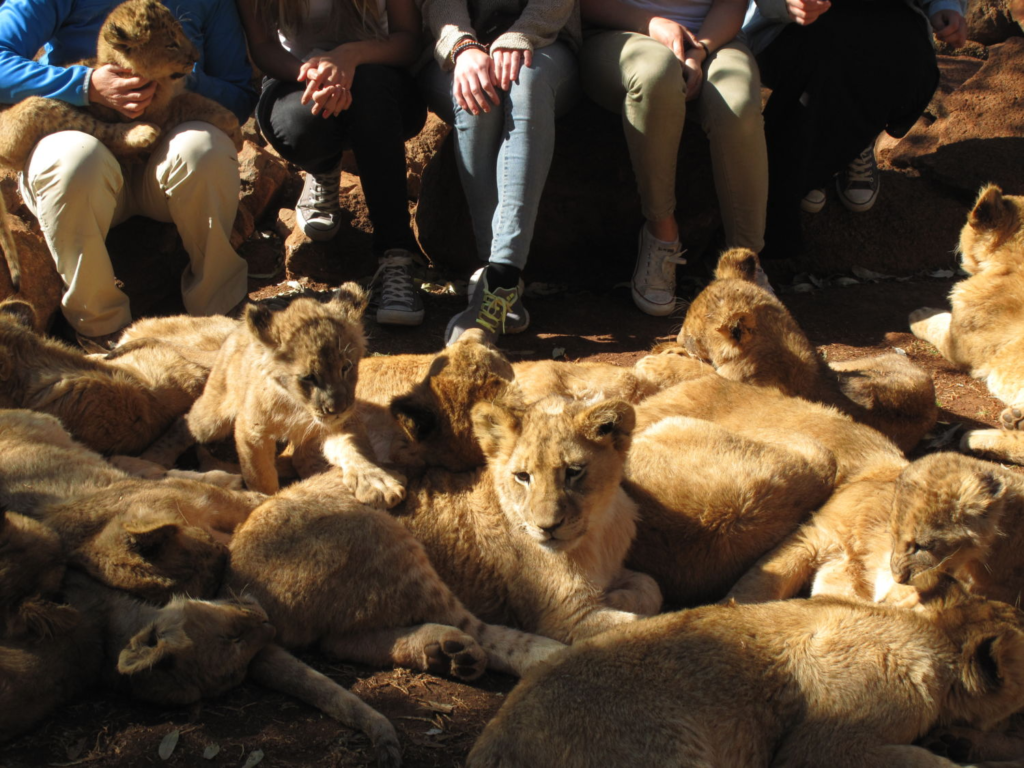On Wednesday, South Africa unveiled a groundbreaking plan to phase out the controversial practice of captive lion breeding for hunting. This move marks a significant shift in conservation policy and reflects growing global concerns about the ethics of trophy hunting and animal welfare.
The Controversy of Captive Lion Breeding
Captive lion breeding, a practice where lions are bred in enclosures with the intention of being hunted by wealthy individuals, has been a contentious issue for years. Typically, these big cats are bred and raised in captivity, only to be hunted for sport by paying clients, often from foreign countries. Trophy hunters frequently take home trophies such as the lion’s head or skin, which can fetch thousands of dollars.
Conservationists and animal rights advocates have long criticized this practice, condemning it as a form of exploitation rather than genuine conservation. The ethical concerns are compounded by reports of poor living conditions and inadequate care for the lions in these breeding facilities.
Government Action and Panel Recommendations
The South African government first announced its intention to ban the captive breeding of lions for hunting in 2021. Following this declaration, an ad hoc panel was established to explore the implications of such a ban and develop a strategy for its implementation. Over the past two years, the panel has thoroughly examined the industry and its impact on both wildlife and conservation efforts.
Environment Minister Barbara Creecy announced the panel’s recommendations at a press conference in Cape Town. The key recommendation is the closure of the captive breeding sector, which includes not only the breeding of lions but also the commercial use of these captive animals or their derivatives. The government has given breeders a two-year grace period to voluntarily exit the sector and transition to alternative business models before the ban takes effect.
Industry Opposition and International Trends
The decision to phase out captive lion breeding has faced significant opposition from industry representatives. The captive lion breeding sector is a substantial business, and the proposed ban threatens the livelihoods of those involved. Critics argue that the industry is complex and deeply entrenched, with a long history that cannot be easily dismantled.
Despite this opposition, the move aligns with growing international trends against trophy hunting. Campaigns in the United States, Australia, and several European countries have increasingly sought to ban the import of hunting trophies, reflecting a broader shift in public opinion against such practices.
Kamalasen Chetty, head of the ad hoc panel, emphasized that the current industry practices are misaligned with both international conservation trends and domestic conservation policies. The decision to ban captive lion breeding represents a significant step towards aligning South Africa’s conservation efforts with these evolving standards.
The State of Lion Populations
South Africa is home to an estimated 8,000 to 12,000 captive lions spread across approximately 350 farms. In stark contrast, the wild lion population in Africa totals only around 3,500, according to the Endangered Wildlife Trust. This disparity highlights the unsustainable nature of captive breeding practices and underscores the urgent need for conservation strategies that prioritize the protection of wild lion populations.
Animal rights groups frequently criticize the conditions under which captive lions are kept, often describing them as inadequate and harmful. The welfare of these animals is a major concern, and the planned ban is expected to alleviate some of the ethical issues associated with their captivity and exploitation.
Looking Ahead
As South Africa moves forward with implementing this historic ban, the focus will shift to ensuring a smooth transition for those currently involved in the captive breeding industry. Efforts will be needed to support breeders in adapting to new business models and to ensure that the welfare of both captive and wild lions is prioritized.
This decision marks a pivotal moment in South Africa’s conservation policy and reflects a growing global consensus on the need to protect wildlife from exploitation. By phasing out captive lion breeding for hunting, South Africa is taking a significant step towards ethical conservation and the protection of its majestic wildlife.


